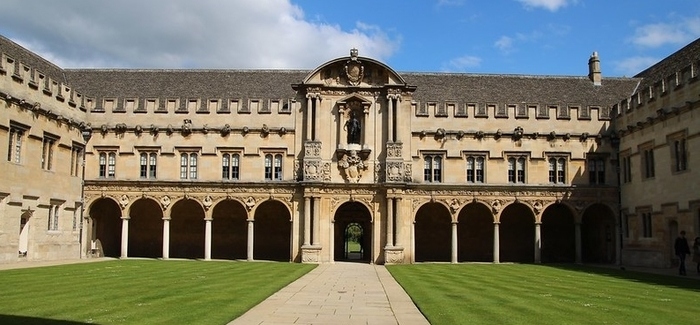Despite the record-breaking number of UK students being accepted into universities this year, it has emerged that top universities in the UK have had to step up their recruitment efforts in order to reach targets on student numbers, going as far as to offer special incentives to high-achieving students and, in many cases, lowering entry requirements.
Although fresher’s week has already drawn to a close for the majority of new students, The Guardian reports that many top universities in the UK are still advertising their programs through Clearing, including seven prestigious Russell Group universities.
Scholarship incentives draw in students
It’s little secret that students happen to like scholarship money, but in the aim of enticing high-achieving students this year, universities have been offering fee discounts in the guise of new “academic” or “excellence” scholarships.
Within the Russell Group universities, both Queen Mary University of London and Sheffield University offered UK£3,000 to UK students pursuing STEM-related (science, technology, engineering and mathematics) subjects with at least three As at A-level, while Southampton University offered a yearly UK£1,000 to UK students in any degree subject who were finishing college with at least three As. Other institutions got a little more creative with their incentives, including Queen’s University Belfast, also one of the 24 Russell Group universities, which offered not only cash rewards but also free flights, free sports club memberships, free movie passes, residential upgrades and even free bedding and kitchen supplies.
These moves have prompted some skepticism, with the vice-chancellor of one of the top universities in the UK condemning such enticements. “This is something demeaning and outside the value set of what a university should be about,” the anonymous vice-chancellor told The Guardian. “Coming and doing a degree is not just a retail offer. It is something higher than that, and prostituting oneself in this way degrades the whole experience.”
Others have seen the move as a completely fair approach for top universities in the UK which are outside of the top 10 in the rankings to differentiate themselves from other institutions, in what has become such a saturated market. What these discounts will do, however, is contribute to a shift in the spread of funding allocations, with arts and humanities students footing the largest bills, while STEM programs are offered at discounted rates, despite being notoriously expensive to run. As pointed out by Matt Robb, managing director of university marketing consultancy Parthenon, this “is unlikely to go down well”, particularly with non-STEM students.
High-achieving students in short supply
The reason behind this new-found competition for students is largely due to recent changes in legislation, which have meant universities may now recruit as many high-achieving students (with A-level grades of ABB and above) as they want. But, with A-level grades falling and top universities in the UK such as Oxford University and the University of Bristol expanding student enrollment numbers, there just aren’t enough high-achieving students to go around.
Exeter University is one institution with has succeeded in reaching its student enrollment targets, despite having expanded undergraduate enrollments by a total of 1,500 over the past two years. The vice-chancellor of the university, Professor Steve Smith, explains that a drop in grade requirements has been inevitable. “UCAS data shows there are about 2,600 fewer students with ABB or more this year, so all our extra students had to come from somewhere,” Smith says.
This lowering of expectations seems set to be more than just a short-term phenomenon, with one vice-chancellor of an unnamed university anxious about the longer term effects. “We are down on our undergraduate recruitment targets, and probably also on last year’s numbers,” the spokesperson told The Guardian. “It looks as though quite a few of our competitors have made lower offers. We are saying we want three As for a course and, officially, they are saying the same – but in practice others have dropped their grades at the offer stage. We are wondering if we have been too inflexible.”
And while this may be good news for students awarded with lower A-level grades, top universities in the UK are likely to remain anxious about lowering their admissions standards in case this should threaten the way they are perceived among future generations of applicants.
Is lowering grade requirements a bad thing?
It should be noted that not all UK universities view the lowering of grade requirements in such a bad light, with the vice-chancellor of Cardiff University – another university with has reached its undergraduate student target – stating, “Particularly if A-levels are being marked more strictly now, taking people a couple of points lower might not mean drastically lowering your standards.”
Riordan adds, however, that this leeway shouldn’t be exploited. “What nobody should be doing is dropping their offers below a threshold that means students will no longer be able to cope with the course,” he says. “That would be immoral and I really hope it is not happening.”














